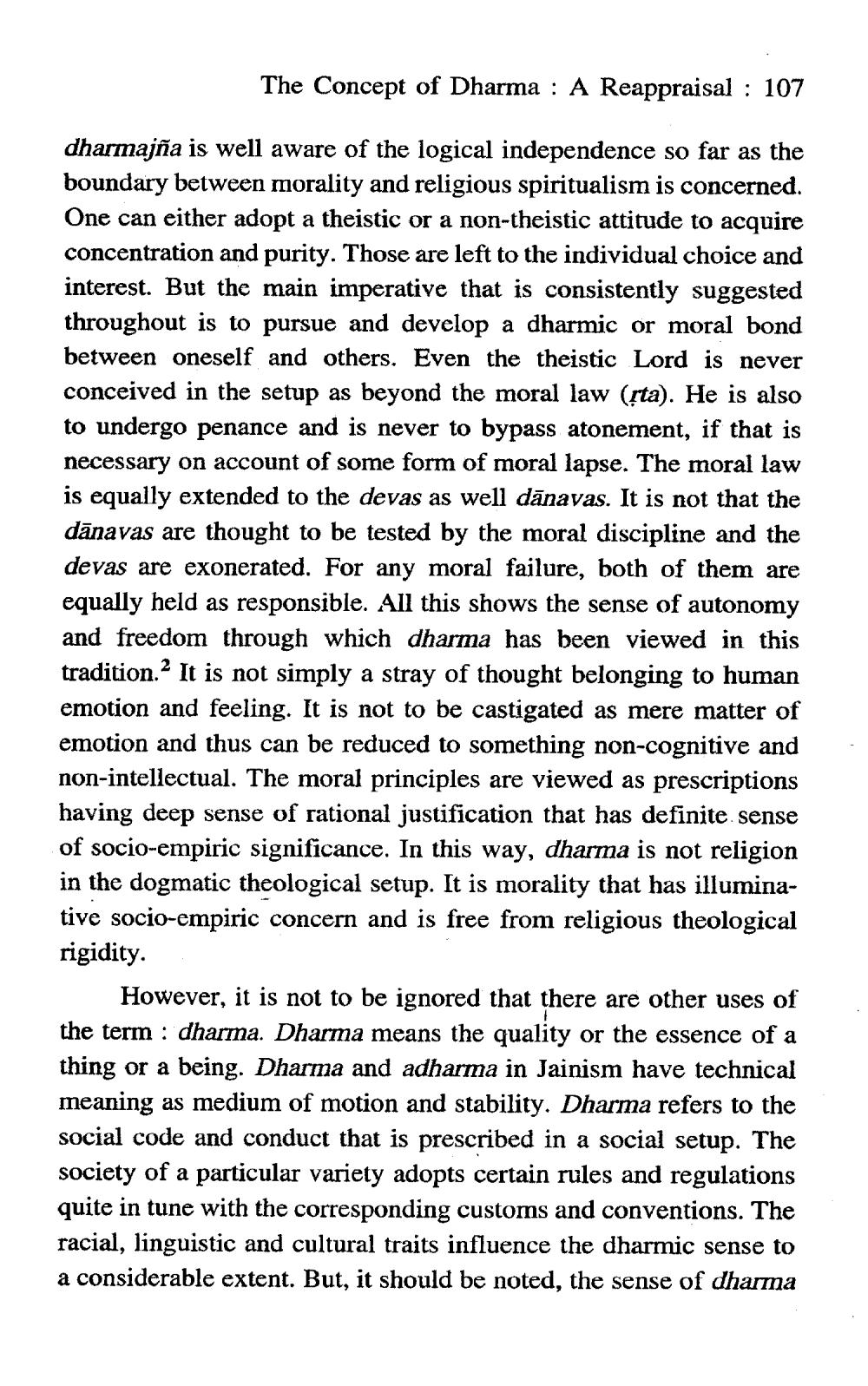________________
The Concept of Dharma : A Reappraisal : 107
dharmajña is well aware of the logical independence so far as the boundary between morality and religious spiritualism is concerned. One can either adopt a theistic or a non-theistic attitude to acquire concentration and purity. Those are left to the individual choice and interest. But the main imperative that is consistently suggested throughout is to pursue and develop a dharmic or moral bond between oneself and others. Even the theistic Lord is never conceived in the setup as beyond the moral law (ta). He is also to undergo penance and is never to bypass atonement, if that is necessary on account of some form of moral lapse. The moral law is equally extended to the devas as well dänavas. It is not that the dānavas are thought to be tested by the moral discipline and the devas are exonerated. For any moral failure, both of them are equally held as responsible. All this shows the sense of autonomy and freedom through which dharma has been viewed in this tradition. It is not simply a stray of thought belonging to human emotion and feeling. It is not to be castigated as mere matter of emotion and thus can be reduced to something non-cognitive and non-intellectual. The moral principles are viewed as prescriptions having deep sense of rational justification that has definite sense of socio-empiric significance. In this way, dharma is not religion in the dogmatic theological setup. It is morality that has illuminative socio-empiric concern and is free from religious theological rigidity.
However, it is not to be ignored that there are other uses of the term : dharma. Dharma means the quality or the essence of a thing or a being. Dharma and adharma in Jainism have technical meaning as medium of motion and stability. Dharma refers to the social code and conduct that is prescribed in a social setup. The society of a particular variety adopts certain rules and regulations quite in tune with the corresponding customs and conventions. The racial, linguistic and cultural traits influence the dharmic sense to a considerable extent. But, it should be noted, the sense of dharma




